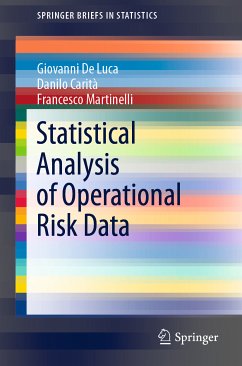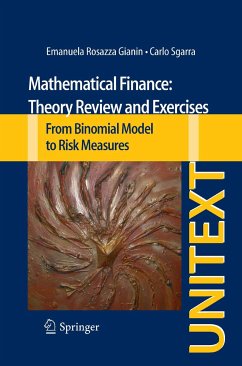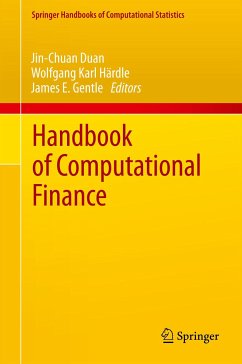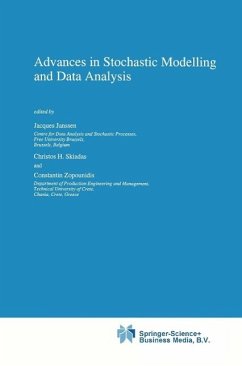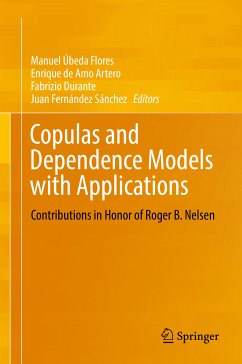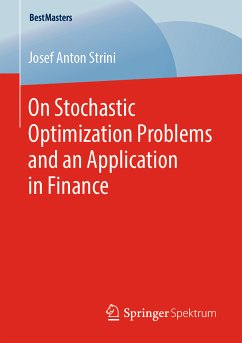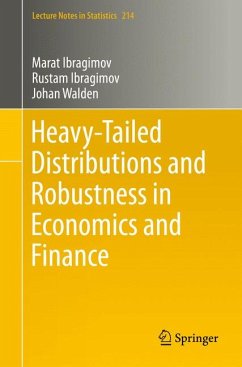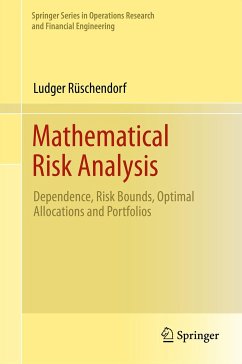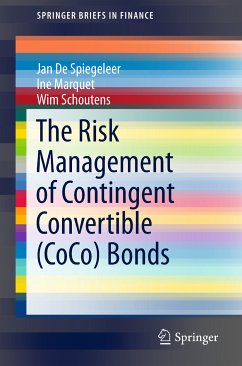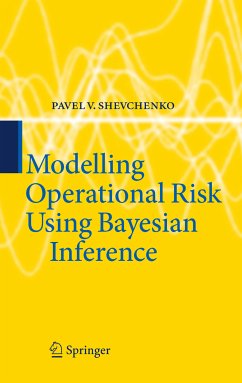
Modelling Operational Risk Using Bayesian Inference (eBook, PDF)
Versandkostenfrei!
Sofort per Download lieferbar
72,95 €
inkl. MwSt.
Weitere Ausgaben:

PAYBACK Punkte
36 °P sammeln!
The management of operational risk in the banking industry has undergone explosive changes over the last decade due to substantial changes in the operational environment. Globalization, deregulation, the use of complex financial products, and changes in information technology have resulted in exposure to new risks which are very different from market and credit risks. In response, the Basel Committee on Banking Supervision has developed a new regulatory framework for capital measurement and standards for the banking sector. This has formally defined operational risk and introduced correspondin...
The management of operational risk in the banking industry has undergone explosive changes over the last decade due to substantial changes in the operational environment. Globalization, deregulation, the use of complex financial products, and changes in information technology have resulted in exposure to new risks which are very different from market and credit risks. In response, the Basel Committee on Banking Supervision has developed a new regulatory framework for capital measurement and standards for the banking sector. This has formally defined operational risk and introduced corresponding capital requirements.
Many banks are undertaking quantitative modelling of operational risk using the Loss Distribution Approach (LDA) based on statistical quantification of the frequency and severity of operational risk losses. There are a number of unresolved methodological challenges in the LDA implementation. Overall, the area of quantitative operational risk is very new and different methods are under hot debate.
This book is devoted to quantitative issues in LDA. In particular, the use of Bayesian inference is the main focus. Though it is very new in this area, the Bayesian approach is well suited for modelling operational risk, as it allows for a consistent and convenient statistical framework for quantifying the uncertainties involved. It also allows for the combination of expert opinion with historical internal and external data in estimation procedures. These are critical, especially for low-frequency/high-impact operational risks.
This book is aimed at practitioners in risk management, academic researchers in financial mathematics, banking industry regulators and advanced graduate students in the area. It is a must-read for anyone who works, teaches or does research in the area of financial risk.
Many banks are undertaking quantitative modelling of operational risk using the Loss Distribution Approach (LDA) based on statistical quantification of the frequency and severity of operational risk losses. There are a number of unresolved methodological challenges in the LDA implementation. Overall, the area of quantitative operational risk is very new and different methods are under hot debate.
This book is devoted to quantitative issues in LDA. In particular, the use of Bayesian inference is the main focus. Though it is very new in this area, the Bayesian approach is well suited for modelling operational risk, as it allows for a consistent and convenient statistical framework for quantifying the uncertainties involved. It also allows for the combination of expert opinion with historical internal and external data in estimation procedures. These are critical, especially for low-frequency/high-impact operational risks.
This book is aimed at practitioners in risk management, academic researchers in financial mathematics, banking industry regulators and advanced graduate students in the area. It is a must-read for anyone who works, teaches or does research in the area of financial risk.
Dieser Download kann aus rechtlichen Gründen nur mit Rechnungsadresse in A, B, BG, CY, CZ, D, DK, EW, E, FIN, F, GR, HR, H, IRL, I, LT, L, LR, M, NL, PL, P, R, S, SLO, SK ausgeliefert werden.




